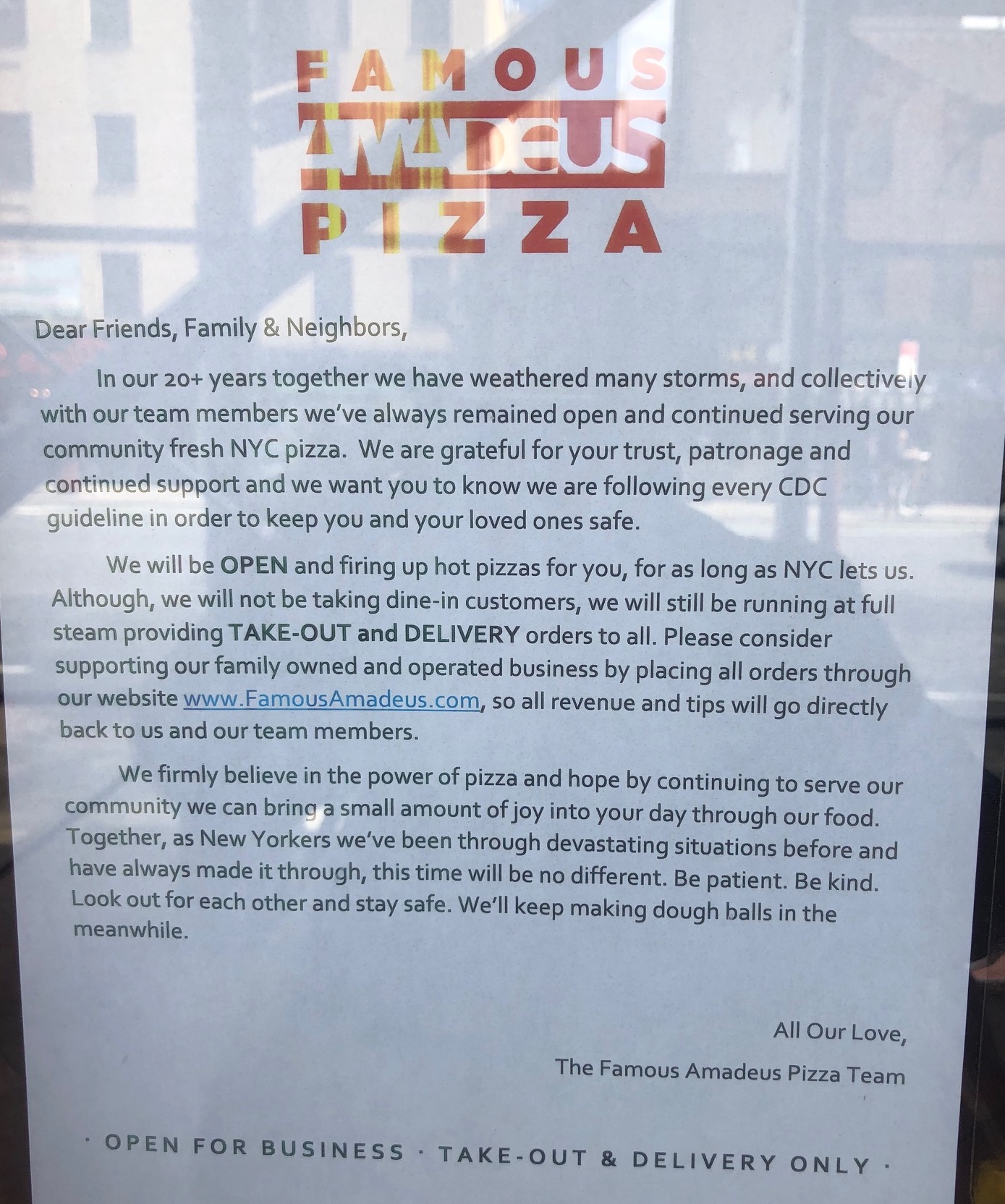“When you do the common things in life in an uncommon way, you will command the attention of the world.”
~ George Washington Carver
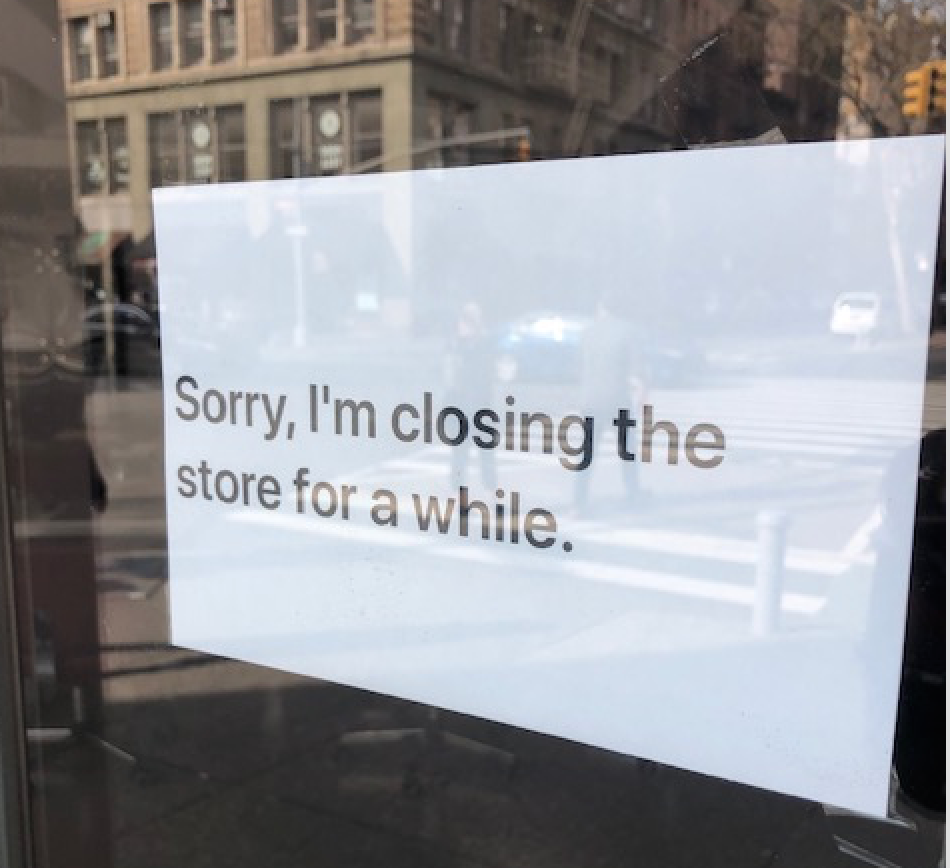
So: You’re wearing a mask and keeping a socially responsible distance. You’re staying safe but taking long daily walks in the nearly empty streets of New York City to keep yourself healthy and sane. You peer into the dark, empty storefronts as you stroll along. You arrive at the place you always found familiar and comforting; it now looks abandoned and forbidding. There is no human to greet you, only a few words on a single page attached to the front door. Almost every door on every street has a similar sign.
As the days of shutdown have dragged on, I’ve become intrigued by these signs, snapping pictures of at least 100 of them. I’ve read the words again and again. They are breathtaking in their sameness, leading me to the question: How much difference can a few words on a simple sign possibly make?
Businesses reopening in the aftermath of the current crisis may soon find out.
Sometimes the message on the door is just one word – “Closed.” Not terribly helpful, is it? That feels more like the end of a relationship than a reassurance that you and your spot will be reunited in the future.
While heavily trafficked commercial chains may have a following who look for convenience alone, a cozy neighborhood haunt cannot exist without building an emotional bond – appreciation, affection, even love – with its customers. When that business closes indefinitely, or its hours are suddenly and severely curtailed, anxious customers need to see words of gratitude, emotion, and empathy: “We thank you.” “We appreciate you.” “We miss you.” “We understand what you are going through because we are going through it, too.”
Empathy should start right there at the front door.
Surprisingly, even in these difficult times, when those words of connectivity matter most, when customers expect to find love letters from deeply grateful owners, they find crisis boilerplate instead, often written in haste, dashed off as a formality and perhaps copied from a neighboring establishment. Even worse, sometimes, the desired words do not appear at all.
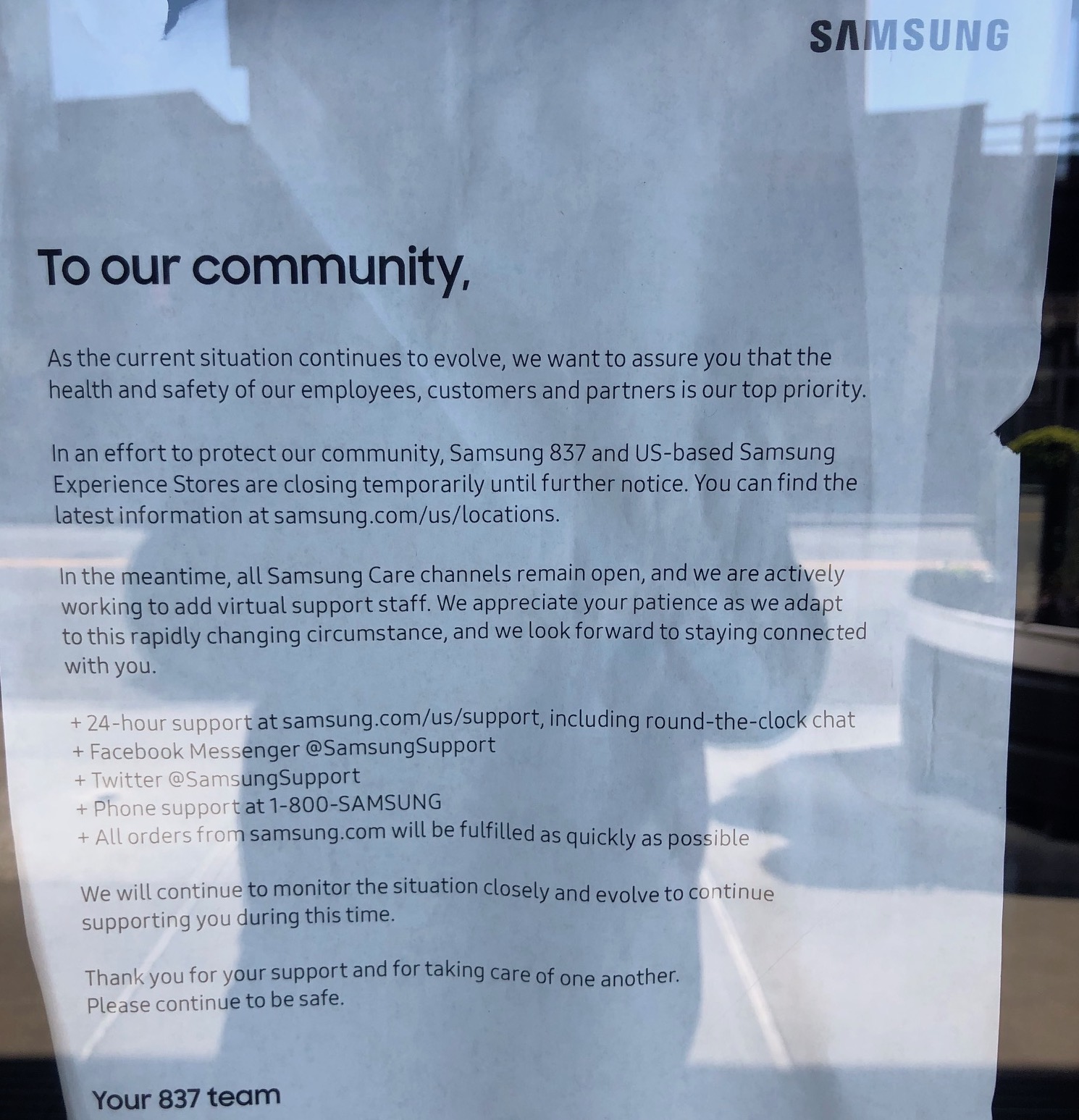
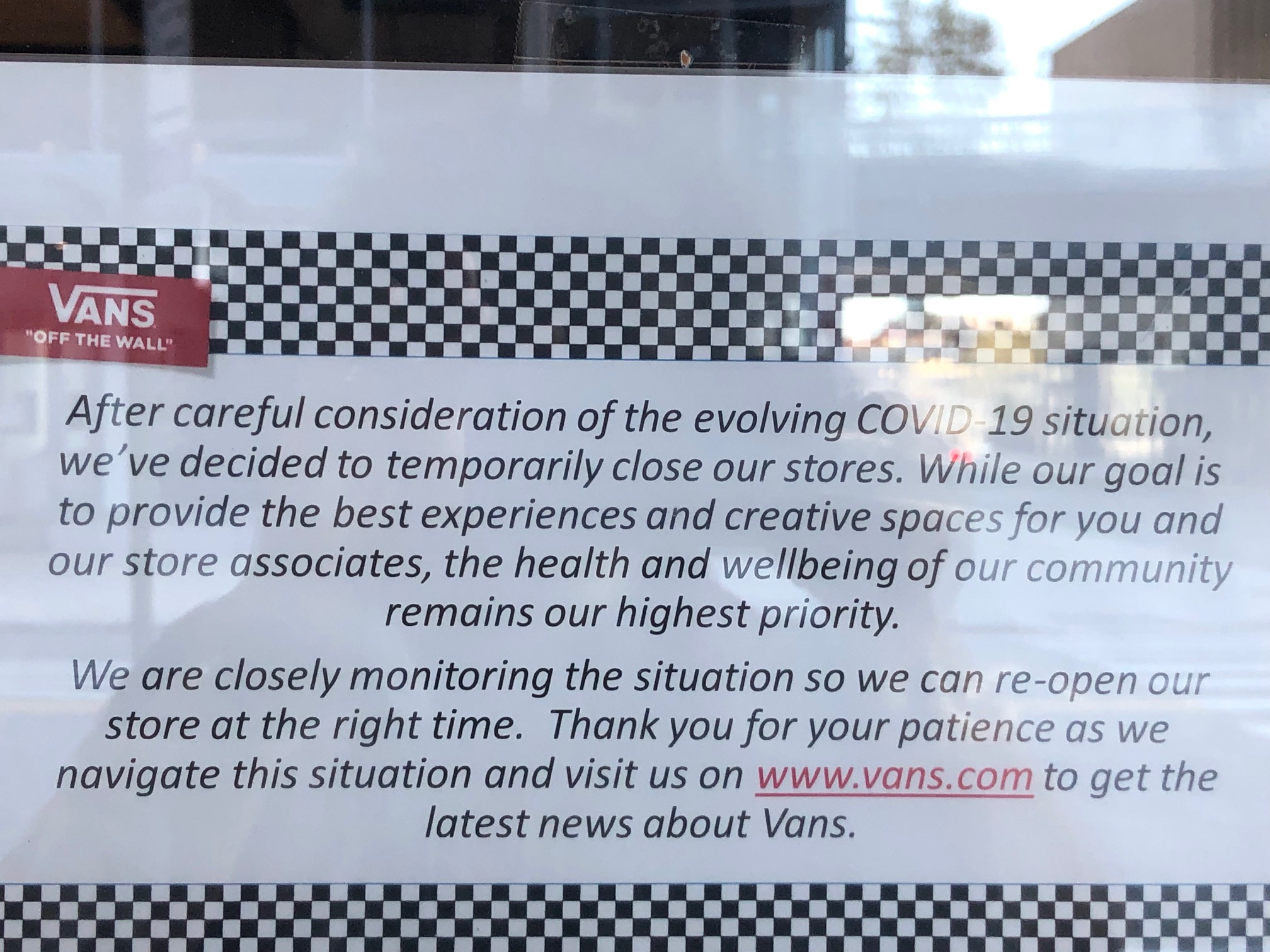
That strategically placed sheet of paper – occasionally drafted with the assistance of a lawyer or a communications professional – may be instructive but it’s not terribly personal. Or authentic. Or meaningful.
That kind of corporate jargon often makes me stop reading – I imagine you know the phrases: “our top priority,” “we are closely monitoring,” “we are committed to …” But owners use them because they know they need to communicate quickly with customers coming to the door, and they want the message to sound official. Professional communicators reading this will understand that the sign on the door is a kind of stand-by statement to let the entire world, including those critical customers, know what is going on in that moment and what they can expect while the crisis – and temporary closure – continues.
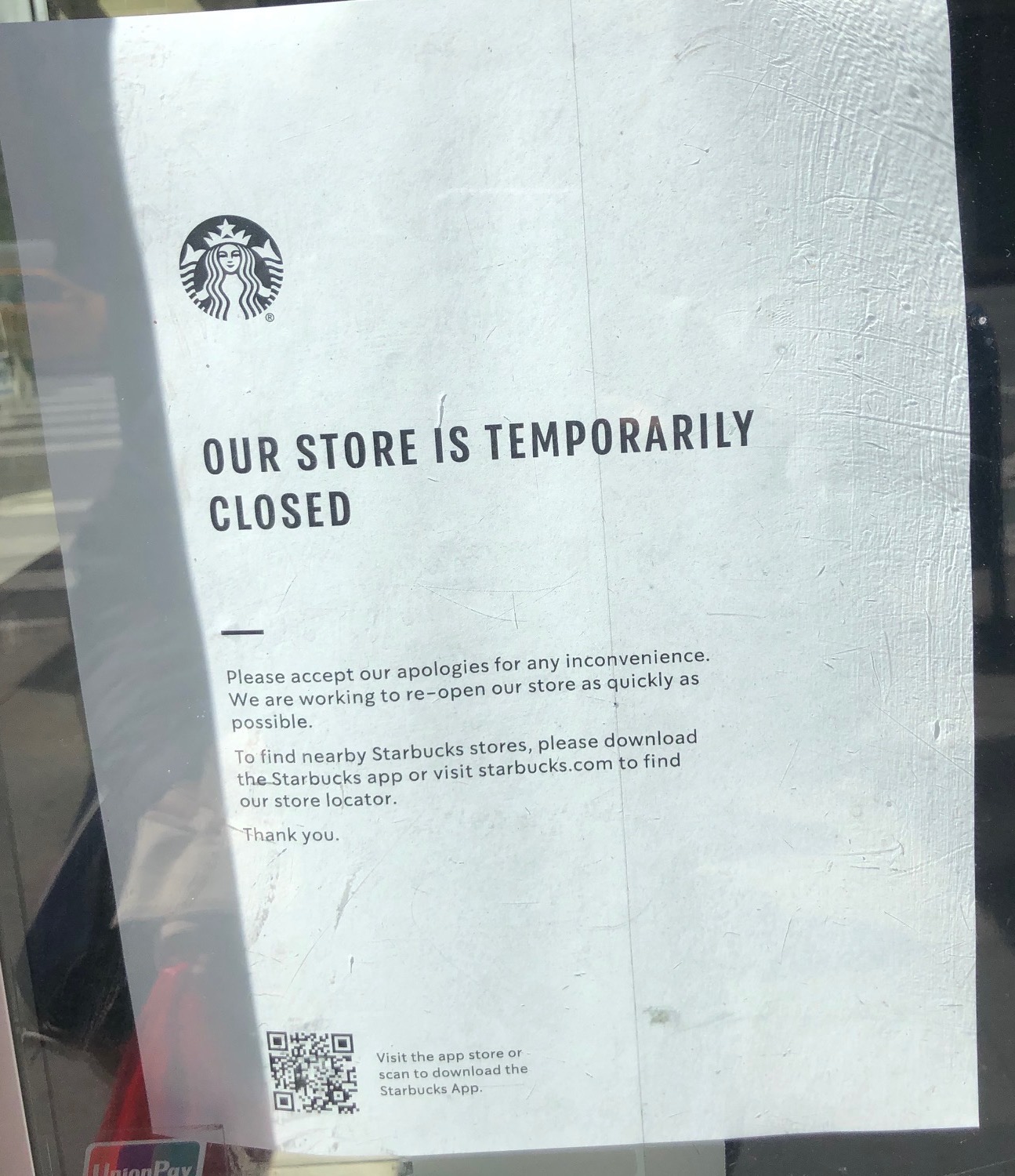
As my colleague, Helio Fred Garcia, has written in The Agony of Decision: Mental Readiness and Leadership in a Crisis, an insightful guide to crisis decision-making (even during one not of your own making), critical communications like that sign on the door should embrace five fundamental elements:
- ACKNOWLEDGMENT – a statement of awareness that something has happened.
- EMPATHY – an expression of empathy or sympathy to those who are hurting or inconvenienced – and in COVID-19 times, everyone is hurting and inconvenienced.
- VALUES – a declaration of the business’ values – including how much that business values those customers.
- APPROACH – a summary of the actions the business is taking in the wake of the crisis.
- COMMITMENT – a statement that sets future expectations, i.e., “We will keep you up-to-date as we hear any important news and will let you know when we can reopen. We will be here for you online even while we are closed.”
[For a quick summary of these elements, see the Leadership Lesson on Standby Statements]
In all fairness, I’m sure these independent owners also mean to communicate how much they love and miss their customers. But their words – crafted out of necessity and in great haste from a template – don’t quite resonate. They don’t quite say: We are closed, but we miss you and are still there for you.
Contrast those signs with recent updates that a certain coffee company has posted on Instagram – the digital front door for many contemporary consumers. Note the likes and comments.
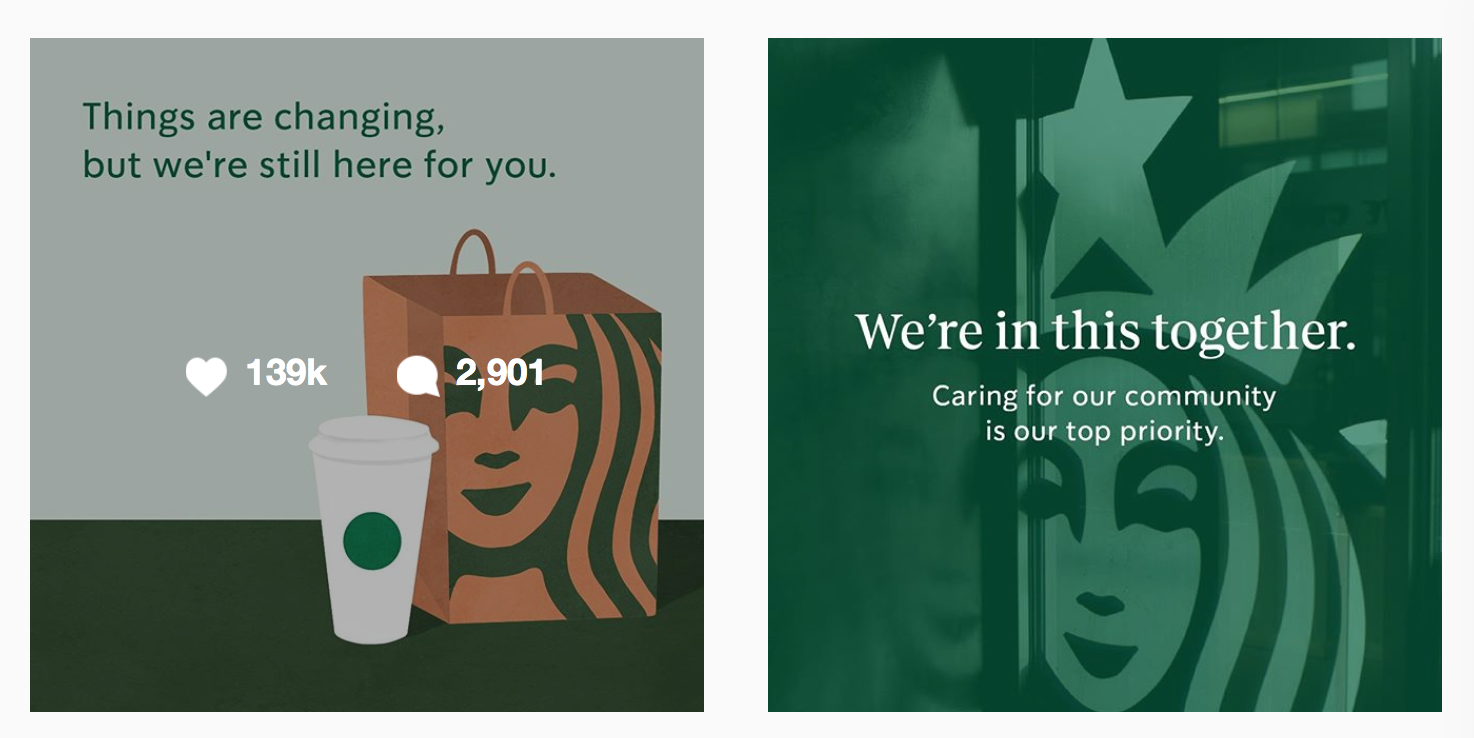
So, for owners of shuttered businesses – small or large, mighty or nimble – here are two important questions you should ask yourself:
1. How can you communicate your message in conversational human language, rather than boilerplate jargon? You’re dealing with ordinary humans. Why not sound like one?
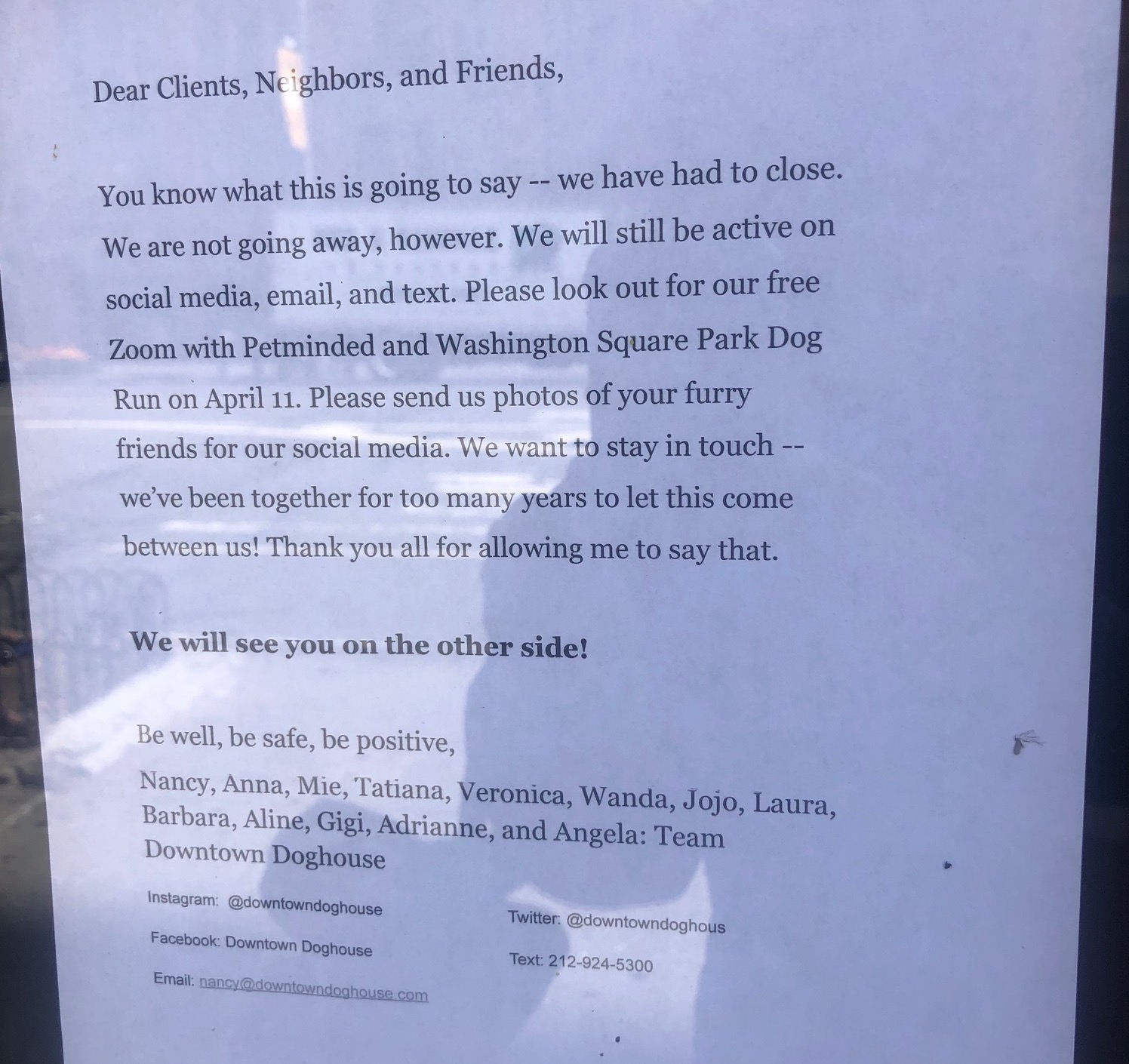
2. How can you include a message of gratitude at the very top of the page? Owners should express their sincere thanks to the customer who has arrived at the door in the first sentence or two. What would happen if the language of the sign started there? Only good things, I promise you.
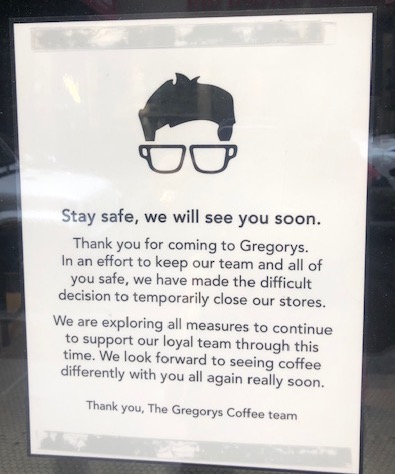
Here are some signs that hit the mark beautifully. Which ones do you like best?


One last thought: many of the signs that I see on the doors have been left there unchanged for weeks.
Dear shop owners— It’s not too late to change that sign!
Love,
Your Devoted Customer
